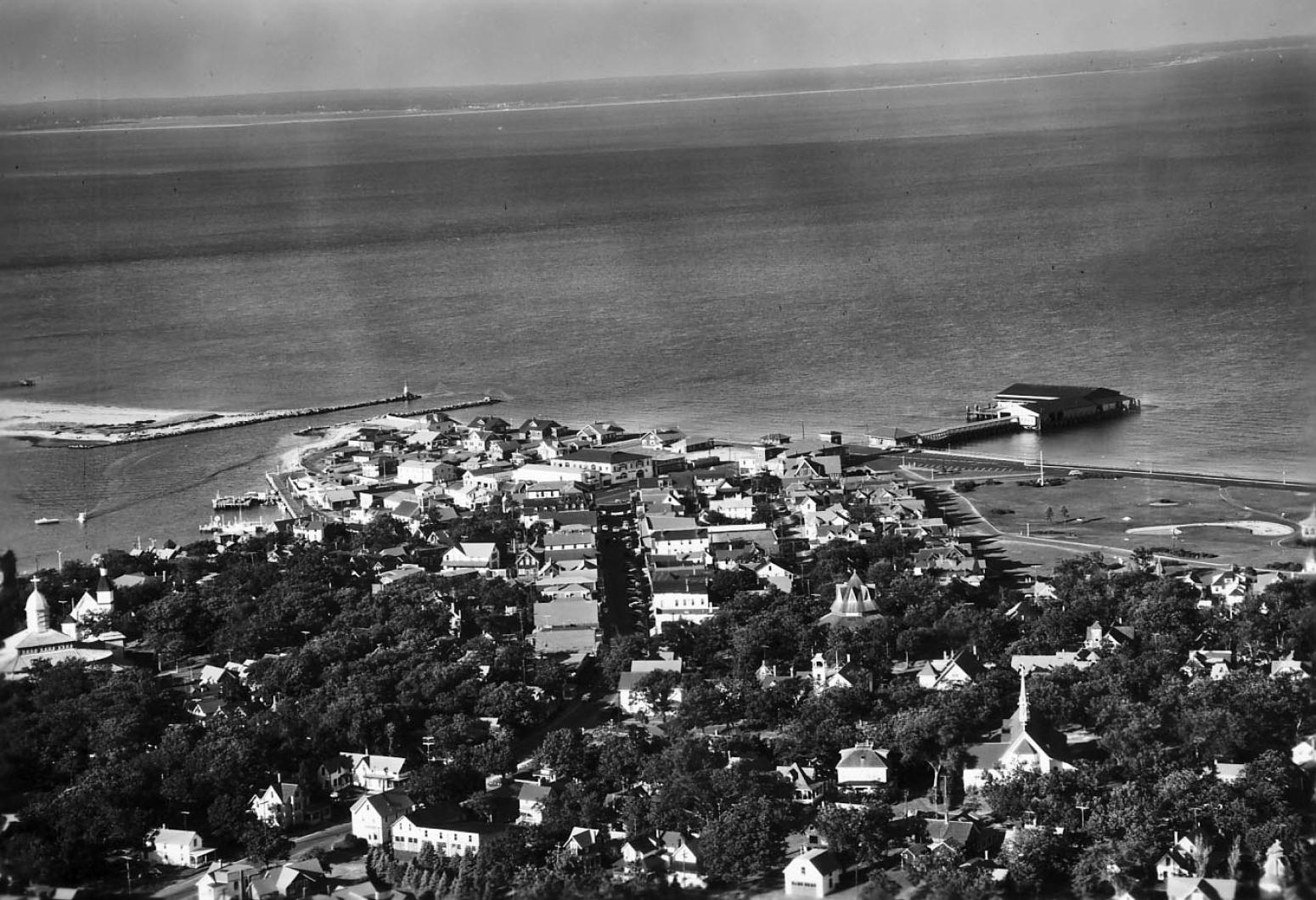It was as if those audio vignettes so often played on the nearby National Public Radio station WCAI were being spoken out loud, live and seriatum at the Oak Bluffs library:
“I used to carry all the bags off the steamboat, then the ice, and then deliver letters. We’d go to the fish market and open quahaugs for all the hotels. And we’d do the Flying Horses at night, and go swimming,” Billy Norton said, recounting growing up in Oak Bluffs in the 1930s.
“I’d go to my job at the Popcorn Store,” added Ginny Hall. “It was the best job, very exciting downtown. We’d stay out till 9 p.m. No excuses to be late.”
Then Kerry Alley spoke up: “Work was very important. I delivered special delivery letters on bike, then telegrams by bike. I worked at Garland’s Red and White. Everybody worked.”
A half dozen Oak Bluffs notables were invited to share their reminiscences of growing up in Oak Bluffs at the library last month, sponsored by the Oak Bluffs Historical Commission.
There were laughs when Mr. Norton shared how he used to change from his shorts into a bathing suit beneath the old town pier. The six notables scoffed at ever eating store-bought meat or buying a new bicycle. They (or their family) hunted and fished for their dinners; they made do with used bikes.
The evening was an opportunity to recall growing up in Oak Bluffs 50-plus years ago. Recollections of wartime rationing, early tiny television sets, and the back woods of Barnes Road flooded the room.
What emerged was a sense of camaraderie and community. The participants — Billy Norton, Donald Billings, Bert Combra, Kerry Alley, Ginny Hall and Catherine Deese — grew up in the West End on Vineyard avenue, known as Chicken street, because everyone kept chickens. They were close to one another, and their memories exuded a sense of family and friendship which bonded and branded them for life.
“I wouldn’t want to have grown up anywhere else,” said Ms. Hall. “The stores carried you through the winter. No one cheated. We shared with everyone.” Groceries were delivered to the house, in those days.
Mr. Norton chimed in: “It was family oriented. We all looked out for the guy next door. Everyone knew each other’s business.”
Blueberries brought a lot of smiles. Mr. Billings recalled how his father would drive young Donald over to Lambert’s Cove Road in his milk truck and leave him with his mother and brother to pick. “I want to see the bottom of your pail covered before your tongue,” Mr. Billings recalled his mother saying.
“We lived off the land,” said Mrs. Deese. She raptured over clambakes on the beach.
“In those days we were allowed to have an open fire,” recalled Mr. Norton with a smile.
Mr. Combra added, “Today, you don’t know how easy you have it.” He explained the weekly menu: Friday night was fish, Saturday was beans and hotdogs, and Sunday was New England boiled dinner.
Three bowling alleys were in use in Oak Bluffs in the forties and Mr. Billings and Mr. Norton recalled earning two cents a string, re-setting pins.
Mr. Alley mentioned the police would close off Vineyard avenue after a big snow storm so children could go sledding.
Memories flowed wistfully for more than an hour-and-a-half, and when the library had to close, the notables and their rapt audience, spilled out into the parking lot to continue to share their recollections. The sense of community blossomed within the group, decades after they played kick-the-can in the Camp Ground or went eeling through the winter ice. It was a poignant evening, and perhaps the historical commission will consider similar future events.
For those who missed the memories, the show was taped for broadcast on MVTV.




Comments
Comment policy »